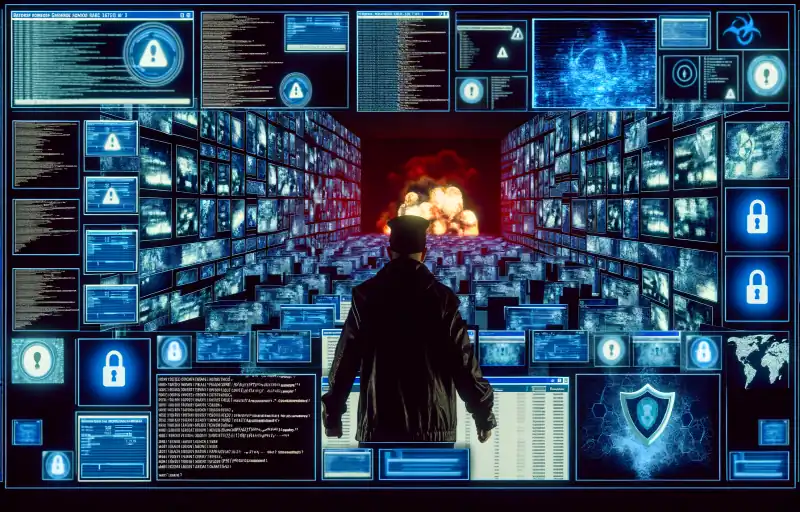
“Indonesia battles to reclaim data after Brain Cipher ransomware attack linked to LockBit 3.0 group.”
The Rise of Brain Cipher: Indonesia’s Battle with a New Ransomware Threat
As of Friday, Indonesia was still struggling to recover data stored in its temporary national data center in East Java following attacks last month by Brain Cipher, a new ransomware strain believed to be linked to the notorious LockBit 3.0 group.
The rise of Brain Cipher has sent shockwaves through the cybersecurity community, as it represents a new and sophisticated threat that has the potential to cause widespread damage. The attack on Indonesia’s data center is just the latest in a string of incidents that have highlighted the need for better cybersecurity measures to protect against such threats.
The Indonesian government has been working tirelessly to recover the lost data, but the process has been slow and painstaking. The attackers used advanced encryption techniques to lock up the data, making it nearly impossible to access without the decryption key. The government has refused to pay the ransom demanded by the attackers, instead opting to try and recover the data through other means.
The attack on Indonesia’s data center is just one example of the growing threat posed by ransomware. In recent years, there has been a significant increase in the number of attacks, with hackers targeting everything from hospitals and schools to government agencies and private businesses. The damage caused by these attacks can be devastating, with some organizations forced to shut down operations entirely while they work to recover their data.
The rise of Brain Cipher is particularly concerning because it appears to be linked to LockBit 3.0, a group that has been responsible for some of the most high-profile ransomware attacks in recent years. LockBit 3.0 is known for its sophisticated techniques and its ability to evade detection by traditional cybersecurity measures. The group has also been known to target critical infrastructure, such as power plants and water treatment facilities, which could have catastrophic consequences if successfully attacked.
The Indonesian government has called on other countries to work together to combat the threat posed by ransomware. It has also urged organizations to invest in better cybersecurity measures to protect against such attacks. This includes regular backups of important data, as well as training employees on how to recognize and respond to potential threats.
The attack on Indonesia’s data center serves as a stark reminder of the dangers posed by ransomware. As hackers continue to develop new and more sophisticated strains of ransomware, it is essential that organizations take steps to protect themselves. This includes not only investing in better cybersecurity measures but also working together with other countries and organizations to share information and resources.
It is essential that organizations take steps to protect themselves against such threats and that countries work together to combat this growing problem. Only by working together can we hope to stay one step ahead of the hackers and keep our data safe from harm.














